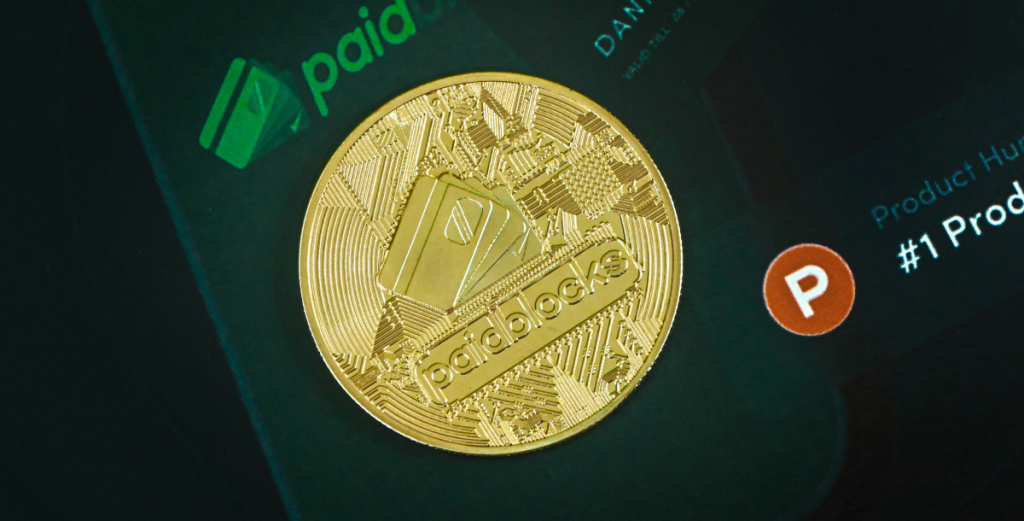As millions of consumers hold digital assets, business leaders are exploring crypto payments to capture new markets and streamline cross-border transactions. Surveys show 56% of consumers prefer merchants that accept crypto, and 85% of merchants view crypto payments as a way to reach new customers.
At the same time, blockchain technology offers real-world benefits for commerce: transactions settle in minutes or seconds (not days), fees can be lower than legacy systems, and irreversible transactions eliminate chargeback fraud.
These trends signal more than consumer interest—they point to a strategic shift in how value moves globally. The rise of stablecoins, growing demand for real-time settlement, and the inefficiencies of legacy rails are forcing a rethink of cross-border payment infrastructure.
In 2023 alone, on-chain stablecoin settlement volumes surpassed $10 trillion, outpacing Visa’s network volume. Meanwhile, merchant interest in crypto is climbing: over 85% of businesses in a Deloitte survey cited lower transaction costs and global reach as top reasons to integrate digital assets.
For payment providers, the message is clear: staying competitive means enabling faster, borderless, and lower-cost payments.
Why Payment Gateways Should Use Crypto
Traditional payment systems—built on aging banking rails—weren’t designed for the speed and scale of digital commerce. Settlement delays, high fees, and multi-party clearing processes limit growth, especially in cross-border transactions. Crypto changes that.
Payment gateways that support crypto can bypass legacy bottlenecks entirely. Blockchain-based payments move value peer-to-peer, 24/7, without intermediaries or delays. Stablecoins and cryptocurrencies settle in near real time, often at a fraction of the cost of card networks or SWIFT transfers.
More importantly, the customer base is already here. Tens of millions of users hold crypto and want to spend it. Payment platforms that offer crypto options can tap into this growing segment, winning wallet share, expanding into new markets, and future-proofing their service offering.
Adding crypto isn’t just about offering a new payment method—it’s about building an infrastructure that supports global, instant, and programmable money.
Benefits of Using Crypto
Businesses and platforms that adopt crypto payments stand to gain across multiple dimensions:
-
Faster Settlements – Transactions on blockchain confirm in seconds or minutes, rather than days. That means quicker merchant payouts and better cash flow.
-
Lower Fees – Crypto payments often bypass traditional processors, reducing per-transaction costs below the 2–4% card average. This also frees up margin for merchants and platforms.
-
Global Reach – Crypto is borderless. Accepting digital assets allows businesses to tap into new markets without worrying about foreign exchange conversion, cross-border fees, or banking restrictions.
-
Chargeback Elimination – On-chain transactions are final—there are no chargebacks or disputes. This reduces fraud-related losses and operational costs tied to reversals.
-
24/7 Availability – Unlike bank transfers, crypto operates around the clock. Merchants can accept payments at any time, from anywhere, with no dependency on clearing hours.
-
Customer Demand – Surveys show that a majority of crypto holders prefer merchants that accept digital currencies. Offering crypto gives platforms a competitive edge in attracting modern buyers.
Relationship Between Crypto and Custody
Crypto unlocks powerful advantages for payments—speed, cost-efficiency, and global reach. But these benefits can only scale securely when paired with proper custody.
At its core, custody is the infrastructure layer that makes crypto usable at scale. While the blockchain processes transactions, custody holds the actual assets. Without a secure place to store and manage those assets, payment systems remain fragile and non-compliant.
Here’s how the two work together in practice:
-
Crypto moves value—custody safeguards it.
-
Crypto eliminates intermediaries—custody replaces them with automation, compliance, and control.
-
Crypto offers real-time settlement—custody ensures those funds are available, traceable, and protected the moment they arrive.
For payment companies, custody isn’t just a back-office function—it’s what enables a professional-grade crypto experience. It handles everything from Know Your Customer (KYC) onboarding to fund segregation, regulatory reporting, key management, and fraud prevention. Without it, even the fastest crypto transaction becomes operationally risky or legally problematic.
That’s why regulators globally—such as the Securities and Exchange Commission, Monetary Authority of Singapore, and the European Commission—now require qualified custody for any institution touching client crypto. For payment gateways, embedding custody means aligning with these frameworks from day one.
Benefits and Risks of Embedded Custody in Payment Gateways
Modern crypto payment gateways need more than transaction speed, they need infrastructure that de-risks operations, satisfies regulation, and delivers value across the chain. Embedded custody does exactly that.
Security Risk → Robust Asset Security
Crypto platforms are prime targets. Mt. Gox lost $450M in Bitcoin; CoinsPaid lost $37.3M in 2023 alone. Without multi-sig wallets, cold storage, and insurance, hot wallets are vulnerable. Embedded custody neutralizes that risk with Hardware Security Modules, private key isolation, and insurance-backed cold storage. ChainUp’s Wallet-as-a-Service provides secure, compliant multi-asset custody by design.
Regulatory Exposure → Compliance Automation
Regulators demand licensed custody, segregation of assets, and full KYC/AML integration. Gateways without it face audits, enforcement, or expensive retrofits. Custody partners bring built-in compliance tooling—KYC/Know Your Business (KYB) onboarding, AML monitoring, travel rule readiness, and full audit trails—reducing overhead and regulatory risk.
Operational Inefficiency → Instant Settlement & UX Simplicity
Without custody, merchants must manage wallets, move funds manually, and navigate crypto volatility. Custody simplifies everything. With real-time, institutional-grade custody, funds are instantly usable, reconciled, and often auto-converted to fiat—no key management required. It shortens payout cycles and unlocks liquidity, improving downstream operations.
Trust Gaps → Fraud Prevention & Transparency
On-chain settlements are final—no chargebacks. Custody platforms add monitoring, real-time alerts, and transparent transaction histories. This not only reduces fraud, it builds long-term trust with merchants and users.
Revenue Pressure → New Business Models
Beyond security and compliance, embedded custody opens up monetization paths. Platforms can charge custody fees, earn yield on idle balances, or offer integrated lending, staking, or DeFi tools. Payments become part of a larger digital asset strategy.
Scale Crypto Payments with Custody Solutions
For business decision-makers, the choice is clear. To leverage crypto payments without undue risk, use a gateway that embeds custody from the start. This approach delivers the speed and cost advantages of blockchain while closing the security and compliance gaps that can otherwise derail a project.
ChainUp stands at the forefront of this evolution. Its payment and wallet platform offers institutional-grade, multi-asset custody and integrated compliance features that empower businesses to accept crypto with confidence.
ChainUp’s white label MPC wallet is designed for enterprises. It provides secure multi-asset custody, seamless, scalable, and compliant crypto management. Whether you are a retailer, fintech, or payments provider, partnering with ChainUp means you can unlock instant settlement and global reach while keeping assets protected by proven custodial technology.
Get in touch with ChainUp’s experts today to launch or scale your crypto payment solution securely and compliantly.




